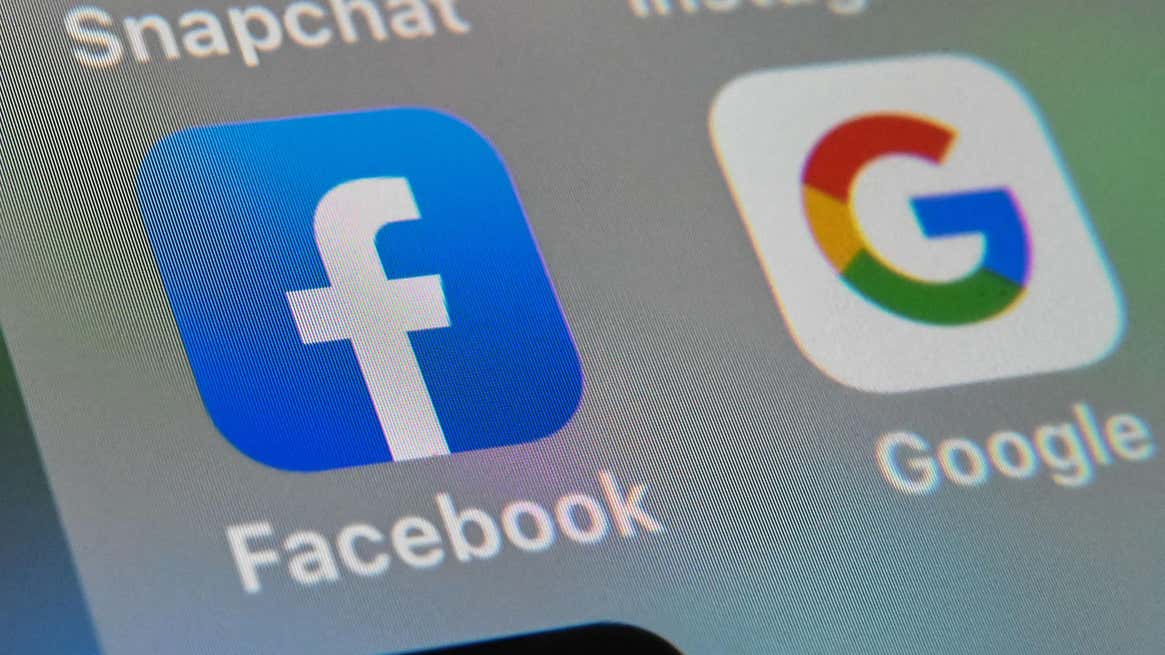The latest update in a multi-state suit targeting the search giant's advertising biz sure doesn't look great for Google and Facebook.
 |
| Photo: Denis Charlet (Getty Images) |
When Texas Attorney General Ken Paxton first spearheaded a blockbuster multistate antitrust case against Google towards the end of 2020, it included some (heavily redacted) allegations of a secret agreement with Facebook that let the duo squash fellow competitors in the advertising space and lord over the lion’s share of digital ad spending to this day. Now, some details about that deal are finally open to the public: new court filings from the suit that were unsealed on Friday allege that the deal, dubbed “Jedi Blue,” gave Facebook an illegal leg-up in Google’s ad auctions in exchange for Facebook’s word that it would back down from its own ad plans. Further, it claims that the top executives at both companies signed off on the deal.
The tech that’s used to serve ads across the internet is byzantine in a way that can even leave people in the online ad industry scratching their heads, which means more than 240 pages in the latest leg of the Texas case can be tricky to explain concisely. In a nutshell, publishers across the web—news sites, recipe blogs, and any other site you can name—typically rely on so-called “ad exchanges” to pawn off their available ad space to advertisers across the web. Google’s ad exchange has historically been one of the biggest around, leaving websites with little option but to work with the company if they wanted to get any sort of decent ad revenue.
This all changed in 2017 with the invention of a new kind of tech called “header bidding” that would let websites bypass Google’s exchange and still make decent earnings from their ad space. Facebook quickly announced it would make itself header bidding-compatible soon after, which meant publishers could tap into Facebook’s many, many (many) advertisers in exchange for surrendering a small chunk of their ad dollars to the company. More ad dollars in Facebook’s pocket meant fewer in Google’s, which the case alleges left the latter scrambling for a way to diffuse this competitive threat.
The deal the two allegedly landed on was “Jedi Blue.” In it, Facebook agreed to cut back on its involvement with header bidding in exchange for “information, speed, and other advantages” it would get by using Google’s ad auctions. One of the biggest advantages described in the case was an alleged up-front quota on how many ad auctions Facebook would win over other competitors using Google’s ad exchange.
While their names are redacted in the documents, the suit claims that Facebook (now Meta) CEO and COO—Mark Zuckerberg and Sheryl Sandberg, respectively—signed off on the deal in 2018, as did Google CEO Sundar Pichai. Today, both of their companies control more than half of the roughly $491 billion dollar digital ad market.
The two companies denied their involvement with the alleged scheme in separate statements to Politico, with both claiming that their ad tech is designed to help advertisers and publishers, rather than line their own pockets. “Despite Attorney General Paxton’s three attempts to re-write his complaint, it is still full of inaccuracies and lacks legal merit,” Google spokesperson Peter Schottenfels said. “There is vigorous competition in online advertising, which has reduced ad tech fees, and expanded options for publishers and advertisers.”
Facebook—which since rebranded to Meta—echoed the sentiment. “Meta’s non-exclusive bidding agreement with Google and the similar agreements we have with other bidding platforms, have helped to increase competition for ad placements,” Meta spokesperson Christopher Sgro said. “These business relationships enable Meta to deliver more value to advertisers while fairly compensating publishers, resulting in better outcomes for all.”
